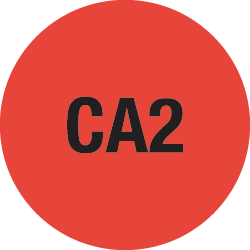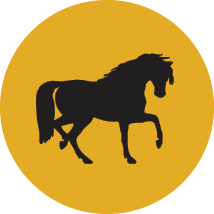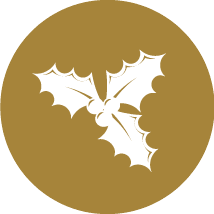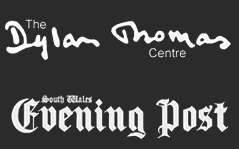Cyfnod Allweddol 2 - A Visit to Grandpa's
In the middle of the night I woke from a dream full of whips and lariats as long as serpents, and runaway coaches and mountain passes, and wide, windy gallops over cactus fields, and I heard the old man in the next room crying, "Gee-up!" and "Whoa!" and trotting his tongue on the roof of his mouth.
It was the first time I had stayed in grandpa's house. The floorboards had squeaked like mice as I climbed into bed, and the mice between the walls had creaked like wood as though another visitor was walking on them. It was a mild summer night, but curtains had flapped and branches beaten against the window. I had pulled the sheets over my head, and soon was roaring and riding in a book.
"Whoa there, my beauties!" cried grandpa. His voice sounded very young and loud, and his tongue had powerful hooves, and he made his bedroom into a great meadow. I thought I would see if he was ill, or had set his bedclothes on fire, for my mother had said that he lit his pipe under the blankets, and had warned me to run to his help if I smelt smoke in the night. I went on tiptoe through the darkness to his bedroom door, brushing against the furniture and upsetting a candlestick with a thump. When I saw there was light in the room I felt frightened, and as I opened the door I heard grandpa shout, "Gee-up!" as loudly as a bull with a megaphone.
He was sitting straight up in bed and rocking from side to side as though the bed were on a rough road and the knotted edges of the counterpane were his reins; his invisible horses stood in a shadow beyond the bedside candle. Over a white flannel nightshirt he was wearing a red waistcoat with walnut-sized brass buttons. The overfilled bowl of his pipe smouldered along his whiskers like a little, burning hayrick on a stick. At the sight of me, his hands dropped from the reins and lay blue and quiet, the bed stopped still on a level road, he muffled his tongue into silence, and the horses drew softly up.
"Is there anything the matter, grandpa?" I asked, though the clothes were not on fire. His face in the candlelight looked like a ragged quilt pinned upright on the black air and patched all over with goat-beards. He stared at me mildly. Then he blew down his pipe, scattering the sparks and making a high, wet dog-whistle of the stem, and shouted: "Ask no questions."
After a pause, he said slyly: "Do you ever have nightmares, boy?"
I said: "No."
"Oh, yes, you do," he said.
I said I was woken by a voice that was shouting to horses.
"What did I tell you?" he said. "You eat too much. Who ever heard of horses in a bedroom?"
He fumbled under his pillow, brought out a small tinkling bag, and carefully untied its strings. He put a sovereign in my hand, and said: "Buy a cake." I thanked him and wished him good night.
As I closed my bedroom door, I heard his voice crying loudly and gaily, "Gee-up! Gee-up!" and the rocking of the travelling bed.
In the morning I woke up from a dream of fiery horses on a plain that was littered with furniture, and of large cloudy men who rode six horses at a time and whipped them with burning bed-clothes. Grandpa was at breakfast, dressed in deep black. After breakfast he said, "There was a terrible loud wind last night," and sat in his armchair by the hearth to make clay balls for the fire. Later in the morning he took me for a walk, through Johnstown village and into the fields on the Llanstephan road.
A man with a whippet said, "There's a nice morning, Mr. Thomas," and when he had gone, leanly as his dog, into the short-treed green wood he should not have entered because of the notices, grandpa said: "There, do you hear what he called you? Mister!"
We passed by small cottages, and all the men who leant on the gates congratulated grandpa on the fine morning. We passed through the wood full of pigeons, and their wings broke the branches as they rushed to the tops of the trees. Among the soft, contented voices and the loud, timid flying, grandpa said, like a man calling across a field: "If you heard those old birds in the night, you'd wake me up and say there were horses in the trees."
We walked back slowly, for he was tired, and the lean man stalked out of the forbidden wood with a rabbit held as gently over his arm as a girl's arm in a warm sleeve.
On the last day but one of my visit I was taken to Llanstephan in a governess cart, pulled by a short, weak pony. Grandpa might have been driving a bison, so tightly he held the reins, so ferociously cracked the long whip, so blasphemously shouted warnings to boys who played in the road, so stoutly stood with his gaitered legs apart and cursed the demon strength and willfulness of his tottering pony.
"Look out, boy!" he cried when we came to each corner, and pulled and tugged and jerked and sweated and waved his whip like a rubber sword. And when the pony had crept miserably round each corner, grandpa turned to me with a sighing smile: "We weathered that one, boy."
When we came to Llanstephan village at the top of the hill, he left the cart by the 'Edwinsford Arms' and patted the pony's muzzle and gave it sugar, saying: "You're a weak little pony, Jim, to pull big men like us."
He had strong beer and I had lemonade, and he paid Mrs. Edwinsford with a sovereign out of the tinkling bag; she inquired after his health, and he said that Llangadock was better for the tubes. We went to look at the churchyard and the sea, and sat in the wood called the Sticks, and stood on the concert platform in the middle of the wood where visitors sang on midsummer nights and, year by year, the innocent of the village was elected mayor. Grandpa paused at the churchyard and pointed over the iron gate at the angelic headstones and the poor wooden crosses. "There's no sense in lying there," he said.
We journeyed back furiously: Jim was a bison again.
I woke late on my last morning, out of dreams where the Llanstephan Sea carried bright sailing boats as long as liners; and heavenly choirs in the Sticks, dressed in bards' robes and brass-buttoned waistcoats, sang in a strange Welsh to the departing sailors. Grandpa was not at breakfast; he rose early. I walked in the fields with a new sling, and shot at the Towy gulls and the rooks in the parsonage trees. A warm wind blew from the summer points of the weather; a morning mist climbed from the ground and floated among the trees and hid the noisy birds; in the mist and the wind my pebbles flew lightly up like hailstones in a world on its head. The morning passed without a bird falling.
I broke my sling and returned for the midday meal through the parson's orchard. Once, grandpa told me, the parson had bought three ducks at Carmarthen Fair and made a pond for them in the centre of the garden, but they waddled to the gutter under the crumbling doorsteps of the house, and swam and quacked there. When I reached the end of the orchard path, I looked through a hole in the hedge and saw that the parson had made a tunnel through the rockery that was between the gutter and the pond and had set up a notice in plain writing: 'This way to the pond.'
The ducks were still swimming under the steps.
Grandpa was not in the cottage. I went into the garden, but grandpa was not staring at the fruit trees. I called across to a man who leant on a spade in the field beyond the garden hedge: "Have you seen my grandpa this morning?"
He did not stop digging, and answered over his shoulder: "I seen him in his fancy waistcoat."
Griff, the barber, lived in the next cottage. I called to him through the open door: "Mr. Griff, have you seen my grandpa?"
The barber came out in his shirtsleeves.
I said: "He's wearing his best waistcoat." I did not know if it was important, but grandpa wore his waistcoat only in the night.
"Has grandpa been to Llanstephan?" asked Mr. Griff anxiously.
"We went there yesterday in a little trap," I said.
He hurried indoors and I heard him talking in Welsh, and he came out again with his white coat on, and he carried a striped and coloured walking-stick. He strode down the village street and I ran by his side. When we stopped at the tailor's shop, he cried out, "Dan!" and Dan tailor stepped from his window where he sat like an Indian priest but wearing a derby hat. "Dai Thomas has got his waistcoat on," said Mr. Griff, "and he's been to Llanstephan."
As Dan tailor searched for his overcoat, Mr. Griff was striding on. "Will Evans," he called outside the carpenter's shop, "Dai Thomas has been to Llanstephan and he's got his waistcoat on."
"I'll tell Morgan now," said the carpenter's wife out of the hammering, sawing darkness of the shop.
We called at the butcher's shop and Mr. Price's house, and Mr. Griff repeated his message like a town crier.
We gathered together in Johnstown square. Dan tailor had his bicycle, Mr. Price his pony trap. Mr. Griff, the butcher, Morgan carpenter, and I climbed into the shaking trap, and we trotted off towards Carmarthen town. The tailor led the way, ringing his bell as though there were a fire or a robbery, and an old woman by the gate of the cottage at the end of the street ran inside like a pelted hen. Another woman waved a bright handkerchief. "Where are we going?" I asked.
Grandpa's neighbours were as solemn as old men with black hats and jackets on the outskirts of a fair. Mr. Griff shook his head and mourned: "I didn't expect this again from Dai Thomas."
"Not after last time," said Mr. Price sadly.
We trotted on, we crept up Constitution Hill, we rattled down into Lammas Street, and the tailor still rang his bell and a dog ran, squealing, in front of his wheels. As we clip-clopped over the cobbles that led down to the Towy bridge, I remembered grandpa's nightly noisy journeys that rocked the bed and shook the walls, and I saw his gay waistcoat in a vision and his patchwork head tufted and smiling in the candlelight. The tailor before us turned round on his saddle, his bicycle wobbled and skidded. "I see Dai Thomas!" he cried.
The trap rattled on to the bridge, and I saw grandpa there: the buttons of his waistcoat shone in the sun, he wore his tight, black Sunday trousers and a tall, dusty hat I had seen in a cupboard in the attic, and he carried an ancient bag. He bowed to us. "Good morning, Mr. Price," he said, "and Mr. Griff and Mr. Morgan and Mr. Evans." To me he said: "Good morning, boy." Mr. Griff pointed his coloured stick at him.
"And what do you think you are doing on Carmarthen bridge in the middle of the afternoon", he said sternly, "with your best waistcoat and your old hat?"
Grandpa did not answer, but inclined his face to the river wind, so that his beard was set dancing and wagging as though he talked, and watched the coracle men move, like turtles, on the shore.
Mr. Griff raised his stunted barber's pole. And where do you think you are going," he said, "with your old black bag?"
Grandpa said: "I'm going to Llangadock to be buried." And he watched the coracle shells slip into the water lightly, and the gulls complain over the fish-filled water as bitterly as Mr. Price complained: "But you aren't dead yet, Dai Thomas."
For a moment grandpa reflected, then: "There's no sense in lying dead in Llanstephan," he said. "The ground is comfy in Llangadock; you can twitch your legs without putting them in the sea."
His neighbours moved close to him. They said: "You aren't dead, Mr. Thomas."
"How can you be buried, then?"
"Nobody's going to bury you in Llanstephan."
"Come on home, Mr. Thomas."
"There's strong beer for tea."
"And cake."
But grandpa stood firmly on the bridge, and clutched his bag to his side, and stared at the flowing river and the sky, like a prophet who is in no doubt.
* A Visit to Grandpa's
Name of Book - Portrait of the Artist as a Young Dog
(A New Directions Book - Norfolk, Conn)


















